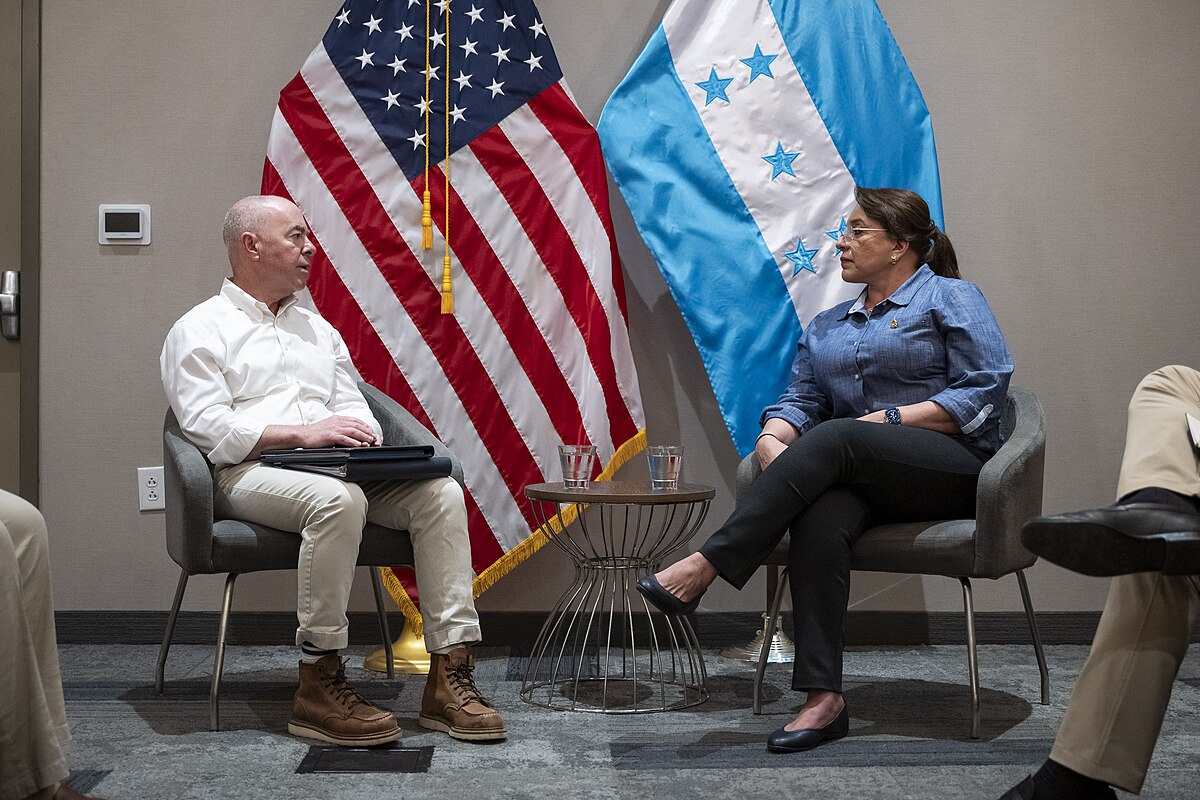- 14 3402-5578
- Rua Hygino Muzy Filho, 737, MARÍLIA - SP
- contato@latinoobservatory.org
 DHSgov
DHSgov
The Honduran government has issued a strong threat to reconsider the presence of U.S. military bases on its territory if Donald Trump, president-elect, carries out his policy of mass deportation. President Xiomara Castro made it clear that, in the face of possible "unnecessary reprisals" against Honduran migrants in the United States, her government could review military cooperation policies with the United States, according to a report in Newsweek.
Castro's statement, made in a New Year's message, represents one of the first international responses to Trump's hardline immigration agenda and signals a firm stance of resistance to the measures that may be adopted by the new U.S. administration.
Castro stressed that the maintenance of U.S. military bases in Honduras, such as the one in Palmerola, which has been operated since the 1980s without paying rent, would lose its justification if the Trump administration continued with a hostile policy toward Honduran migrants. She also reinforced the hope that the US government will be open to dialogue and adopt a constructive approach that avoids unnecessary sanctions and reprisals. An estimated two million Hondurans currently live and work in the United States, playing a significant role in the U.S. economy, according to Honduran government data.
With Trump's inauguration scheduled for Jan. 20, he is expected to issue executive orders aimed at tightening immigration control and border security. Among the measures announced are the end of the catch-and-release policy, the resumption of the "Remain in Mexico" program and the use of the National Guard to implement mass deportations. In addition, Trump also signaled the possibility of imposing punitive tariffs on Mexico, Canada and possibly Honduras, if these countries do not cooperate with their migration and anti-drug trafficking goals.
As a response to this scenario, Castro announced that, as president of the Community of Latin American and Caribbean States (CELAC), he will co-host, alongside Mexican President Claudia Sheinbaum, a meeting of foreign ministers to discuss migration issues, seeking a joint regional strategy.
According to Tony García, Honduran deputy
foreign minister, about 250,000 Hondurans are expected to be deported from the
United States in 2025, which poses a major challenge for the country, which
does not have adequate infrastructure to deal with this potential mass return.
Data from the Pew Research Center indicates that in 2022, about 525,000
Honduran immigrants without legal documentation resided in the United States.











